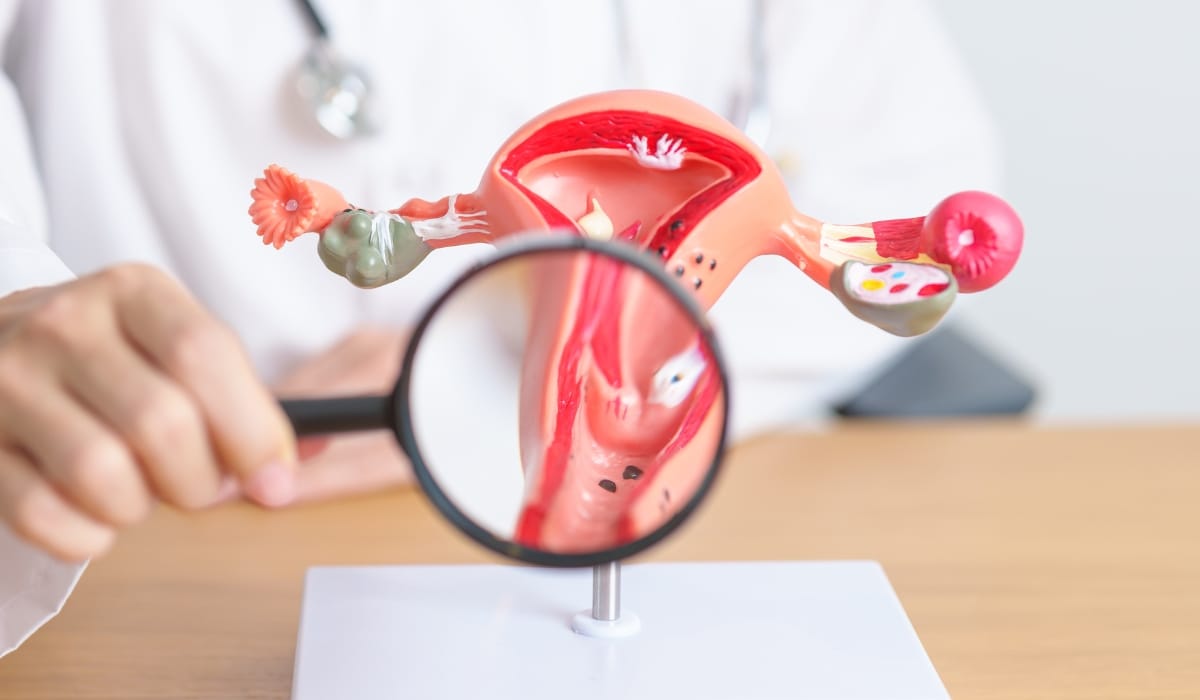Treatment options and pricing
Browse and click below to book any of our available service.
Endometriosis Management Initial Consultation – Virtual
Included in the Endometriosis Management Initial Consultation – Virtual
Your 60-minute initial consultation includes a full review of symptoms, diet, lifestyle, and medical history. We create a personalised nutrition and lifestyle plan to ease pain, bloating, fatigue, support fertility, and provide practical strategies for daily life.
Endometriosis Management Follow-up Consultation – Virtual
Included in the Endometriosis Management Follow-up Consultation – Virtual
Follow-up sessions review your progress, refine your personalised nutrition and lifestyle plan, address flare-ups, and provide ongoing support to manage pain, bloating, fatigue, and optimise energy and fertility outcomes.
Common Q&A about Nutritional Therapist–Led Endometriosis Management
Our FAQ section is designed to address common questions you may have, from how our treatments work to what you can expect during and after your session.
Our team is always available to provide additional support if you need more personalised guidance, ensuring that you feel informed and confident every step of the way.
While nutrition does not cure endometriosis, studies show that anti-inflammatory diets and supervised plans like the low-FODMAP approach can reduce pain and improve quality of life.
Common triggers include processed foods, refined sugars, alcohol, and sometimes gluten or dairy. Our nutritional therapist creates a personalised plan, so you don’t cut foods unnecessarily.
The low-FODMAP diet reduces fermentable sugars that can worsen bloating and pain. Evidence supports its role in easing IBS-like symptoms common in endometriosis.
A Mediterranean diet rich in fruit, vegetables, whole grains, fish, and olive oil has been linked to reduced inflammation and symptom relief in endometriosis.
Optimising nutrients such as iron, folate, vitamin D, and omega-3s can support reproductive health and IVF outcomes, particularly in women with endometriosis and adenomyosis.
Supplements may be considered for deficiencies (e.g., vitamin D, B12, or iron). We only recommend evidence-based, safe options after reviewing blood results.
Yes. Nutrition strategies focusing on stabilising blood sugar, balancing meals, and correcting deficiencies may reduce fatigue and improve daily energy.
Most patients benefit from an initial consultation plus at least two follow-ups. Complex cases may need longer-term support depending on symptoms and goals.
At The Health Suite offers secure online appointments across the UK.
Simply contact our reception or book online via our website. We’ll arrange your initial consultation and discuss follow-up options tailored to your needs.
References
- Becker, C.M. et al. (2022) ‘ESHRE guideline: Endometriosis’, Human Reproduction Open, 2022(2), hoac009.
- NICE (2025) Endometriosis: diagnosis and management (NG73). London: National Institute for Health and Care Excellence.
- Varney, J.E. et al. (2025) ‘Effect of a 28-day low-FODMAP diet on gastrointestinal symptoms and quality of life in endometriosis’, Alimentary Pharmacology & Therapeutics, 62(1).
- Barrea, L. et al. (2025) ‘Effectiveness of medical nutrition therapy in the management of endometriosis’, Nutrients, 17, 1234.
- Zhou, L. et al. (2025) ‘Dietary patterns and supplementation in endometriosis: a narrative review’, Frontiers in Nutrition, 12:1539665.
- Kalaitzopoulos, D.R. et al. (2022) ‘Effects of vitamin D supplementation in endometriosis: a systematic review’, Nutrients, 14(1), 261.
Symptom checker
If you are experiencing any of these symptoms, please book an appointment with us. Symptoms can vary from person to person and from condition to condition.A proper diagnosis can only be made through a thorough medical examination.
Our clinicians will carry out a full assessment to ensure an accurate diagnosis and appropriate care.
Are you living with pelvic pain, bloating, or digestive discomfort?
Nutrition plans can target gut‑linked symptoms and abdominal discomfort frequently seen in endometriosis and adenomyosis.
Do you struggle with fatigue, low energy or “endo‑brain fog”?
Dietary strategies aimed at stabilising energy and key nutrients may ease tiredness and support daily functioning.
Has endometriosis affected your fertility or IVF journey?
Optimising nutrient status and markers like iron, folate and vitamin D may support fertility efforts alongside medical care.
Are symptoms flaring on certain days or with specific foods?
Identifying triggers and creating flare‑day nutrition strategies helps you manage painful or sensitive periods.
Do you want to reduce inflammation and support hormone balance?
Anti‑inflammatory, nutrient‑rich diets form part of personalised plans to ease symptom burden as part of a broader care pathway.
Have you had surgery or treatment and want to optimise recovery?
Tailored nutrition guidance can help with healing, GI symptoms and overall well-being post‑surgery.
What we treat
At The Health Suite Leicester, our private medical clinic offers expert care whenever you need it. Our team of experienced GPs and healthcare professionals provide personalised diagnosis and treatment for a wide range of medical conditions, ensuring high-quality, professional care in a comfortable setting.
Click below to view useful info on a few of the common conditions we treat:
Digestive symptom support
Personalised plans ease bloating, irregular bowels and IBS‑type issues common with endometriosis.
Inflammation and pain burden
Nutrition strategies emphasising anti‑inflammatory foods can help reduce pain and improve quality of life.
Energy and nutrient optimisation
Assessment and correction of micronutrient levels such as iron, vitamin D and B12 to support energy and health.
Hormone balance support
Dietary recommendations aim to complement hormone‑related care, supporting metabolic and inflammatory pathways.
Behavioural & lifestyle coaching
Practical support and coaching on everyday eating, flare‑day strategies, lifestyle habits and travel/going‑out nutrition.
many more
Our clinicians manage a broad spectrum of conditions, and individual assessment allows us to tailor care beyond the examples listed. We encourage you to book a consultation to discuss your symptoms and appropriate treatment options.


